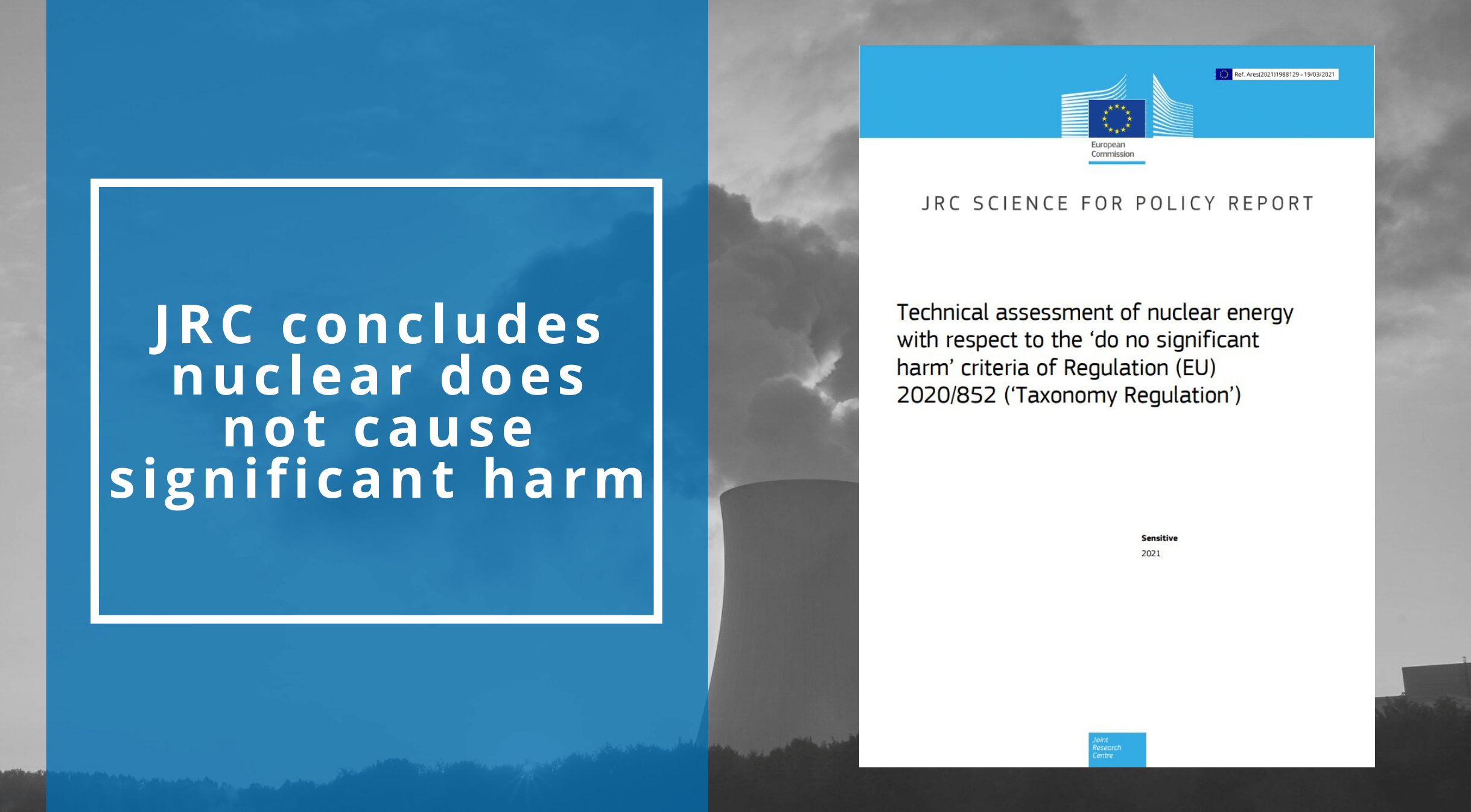In March 2021 the Joint Research Centre (JRC) published the technical assessment of nuclear energy with respect to the ‘do no significant harm’ criteria of Regulation (EU) 2020/852 (‘Taxonomy Regulation’) which concludes that “there is no science-based evidence that nuclear energy does more harm to human health or to the environment than other electricity production technologies already included in the EU Taxonomy as activities supporting climate change mitigation“.
By way of background, the Taxonomy Regulation on the establishment of a framework to facilitate sustainable investments, sets out the conditions that an economic activity has to meet in order to qualify as environmentally sustainable. In 2020 the Technical Expert Group on Sustainable Finance (TEG), responsible for advising the European Commission on the criteria for the climate change mitigation and adaptation objectives, concluded that nuclear energy could be a contributor to climate mitigation objectives, but requested further assessment of the ‘do no significant harm’ aspects to ensure that nuclear energy did not cause harm to other environmental objectives in particular related to the management of the nuclear and radioactive waste. The JRC has now published the requested technical report, which states that “the impacts of nuclear energy are mostly comparable with hydropower and the renewables, with regard to non-radiological effects“. This report will now be reviewed by two sets of experts: the Group of Experts on radiation protection and waste management and the Scientific Committee on Health, Environmental and Emerging Risks. The European Commission will take a decision concerning the inclusion of nuclear energy in the EU Taxonomy based on these three reports.

